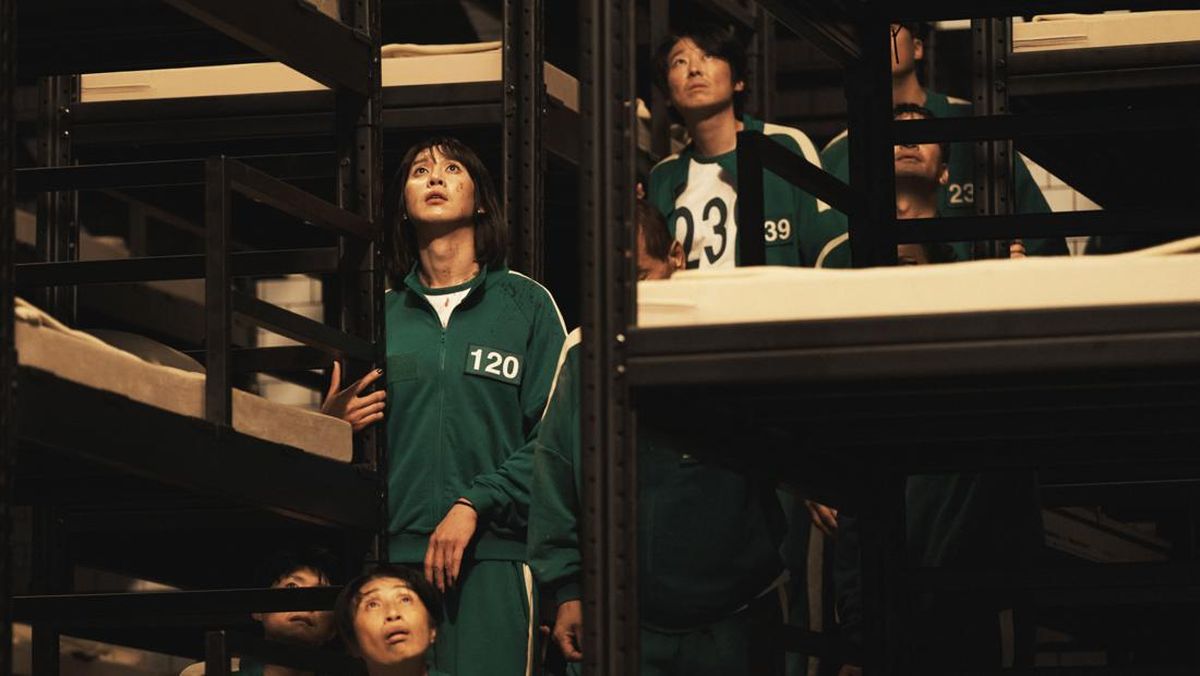Squid Game Histoire Vraie? The hit Netflix series wasn’t just a thrilling spectacle; it sparked intense debate about its reflection of real-world issues. This exploration delves into the socio-economic conditions in South Korea and globally that might have inspired the show’s brutal games and desperate characters. We’ll examine the parallels between the fictional games and real-life struggles with debt, poverty, and the allure of high-stakes competition, uncovering the unsettling truths behind the show’s captivating narrative.
We’ll analyze the cultural significance of the traditional Korean children’s games twisted into deadly contests, exploring the symbolism and psychological manipulation at play. The diverse cast of characters, each representing a different facet of societal struggle, will be examined, highlighting the impact of economic inequality and systemic flaws on their choices and fates. Finally, we’ll consider the show’s global impact and its contribution to conversations about social and economic justice.
The Inspiration Behind “Squid Game”: Real-World Parallels: Squid Game Histoire Vraie

The immense popularity of “Squid Game” stems not only from its thrilling plot but also from its chillingly accurate portrayal of socio-economic struggles faced by many globally. The show’s brutal games serve as a stark metaphor for the desperate measures individuals may take when faced with overwhelming debt and systemic inequality. This section explores the real-world conditions that likely influenced the show’s themes.
Socio-Economic Conditions in South Korea
South Korea’s rapid economic growth has been accompanied by significant income inequality. A substantial portion of the population struggles with high levels of debt, precarious employment, and limited social safety nets. The pressure to succeed in a highly competitive society, coupled with the stigma surrounding financial hardship, can lead to immense stress and desperation, mirroring the desperation portrayed in the show.
Real-Life Debt Crises and Their Impact
Numerous instances of debt-related crises in South Korea and worldwide underscore the show’s realism. Many individuals and families face crippling debt from loans, medical expenses, or business failures. This can lead to homelessness, mental health issues, and even suicide. The desperation depicted in “Squid Game,” where characters participate in deadly games to escape debt, tragically reflects the harsh realities faced by some individuals grappling with financial ruin.
Extreme Poverty and Desperation
While South Korea is a developed nation, pockets of extreme poverty and social exclusion persist. The show reflects the struggles of marginalized communities, highlighting the desperation driven by lack of opportunities and systemic inequalities. Similar scenarios of poverty and desperation are observable globally, in both developed and developing countries, where individuals are forced to make difficult choices to survive.
Prevalence of Gambling and High-Stakes Games
Gambling addiction is a significant issue globally, often exacerbating existing financial problems. The allure of high-stakes games, promising quick riches, can trap individuals in cycles of debt and despair. This resonates strongly with “Squid Game,” where the allure of a massive prize lures participants into life-threatening competition.
Comparative Table: Fictional Games vs. Real-World Parallels
| Game Element | Real-World Parallel | Severity | Impact |
|---|---|---|---|
| Red Light, Green Light | High-stakes job market competition | High | Unemployment, financial instability |
| Honeycomb | Navigating complex bureaucratic systems | Medium | Frustration, missed opportunities |
| Tug-of-War | Corporate power struggles, social inequality | High | Economic disparity, social injustice |
| Marbles | Exploitative financial schemes, predatory lending | High | Debt, financial ruin |
The Games in “Squid Game”: Origins and Symbolism
The deadly games in “Squid Game” are not randomly chosen; they draw heavily from traditional Korean children’s games, imbuing them with a potent layer of symbolism that reflects the show’s central themes.
Cultural Significance of Traditional Korean Children’s Games
The selection of these seemingly innocent games highlights the juxtaposition between childhood innocence and the brutal realities of adult life within the show’s narrative. The familiarity of these games adds a layer of unsettling irony to the deadly context in which they are presented.
Symbolic Meaning of Each Game
Each game carries symbolic weight, representing various aspects of the show’s themes. Red Light, Green Light symbolizes the relentless pressure to conform and succeed in a highly competitive society. Honeycomb represents the fragility of hope and the difficulty of overcoming systemic obstacles. Tug-of-war symbolizes the struggle between different social classes and the uneven playing field. Marbles represents betrayal, trust, and the desperation of those clinging to survival.
Psychological Manipulation in the Games
The games employ psychological manipulation to break down the players’ resolve and exploit their vulnerabilities. This mirrors real-world scenarios of exploitation and coercion, where individuals are manipulated into making decisions against their best interests. The manipulation within the games emphasizes the power dynamics at play and the vulnerability of those in desperate situations.
Historical Examples of High-Stakes Competitions
Throughout history, numerous high-stakes competitions and survival scenarios have mirrored the intensity and desperation of “Squid Game.” Examples include gladiatorial combat in ancient Rome, historical battles, and even modern-day extreme sports with high risks.
Symbolic Representation of Each Game, Squid game histoire vraie

- Red Light, Green Light: The relentless pressure to conform and succeed.
- Honeycomb: The fragility of hope and the difficulty of overcoming systemic obstacles.
- Tug-of-War: The struggle between different social classes and the uneven playing field.
- Marbles: Betrayal, trust, and the desperation of those clinging to survival.
- Glass Stepping Stones: The precarious nature of life and the risk of taking chances.
- Squid Game: The ultimate confrontation between survival and death.
The Characters in “Squid Game”: Representations of Social Issues

The diverse cast of “Squid Game” is not simply a collection of individuals; they are powerful representations of various social strata and the struggles they face within a deeply unequal society. Their motivations, moral choices, and ultimate fates illuminate the complex interplay of economic inequality, social injustice, and systemic oppression.
Diverse Backgrounds and Motivations
Each character’s background and motivation are intricately woven into the narrative, showcasing the diverse ways in which socio-economic pressures affect individuals. From the indebted Gi-hun to the cunning Sang-woo, each character’s journey reflects the desperation born from different circumstances.
So you’re wondering about “squid game histoire vraie,” right? It’s a popular question, as the show’s brutal games feel almost too real. To dive deeper into whether there’s any truth behind the fictional violence, check out this article exploring the “squid game histoire vraie” squid game histoire vraie angle. Ultimately, figuring out the real-life inspiration behind the show’s premise is a fascinating part of understanding its impact.
Characters’ Struggles Reflecting Real-World Issues
The characters’ struggles mirror real-world issues like economic inequality, social injustice, and systemic oppression. Their experiences highlight the systemic flaws that contribute to poverty, debt, and the lack of opportunity for many.
Characters’ Moral Choices and Consequences
The show explores the moral complexities faced by individuals under extreme pressure. The characters’ choices, often driven by desperation, showcase the difficult ethical dilemmas faced when survival is on the line. Their actions and their consequences demonstrate the high stakes of survival in a system that offers little hope.
Characters Grouped by Social Class
The characters can be categorized into different social classes based on their economic status and background. This allows for a clear depiction of the different struggles and aspirations within each group, further emphasizing the impact of class inequality.
Societal Pressures and Systemic Flaws

The characters’ decisions are heavily influenced by societal pressures and systemic flaws. The following blockquotes illustrate their key dilemmas:
Gi-hun’s overwhelming debt forces him into a desperate gamble, highlighting the lack of social support for those facing financial ruin.
Sang-woo’s ambition and the pressure to succeed lead him down a path of deceit and self-destruction, revealing the harsh realities of a highly competitive society.
So, you’re wondering about “Squid Game histoire vraie”? While the show’s fictional, its themes of desperation resonate with real-world struggles. Think about the intense pressure people face, and how new regulations, like those outlined in the new drone rules canada , impact livelihoods. The show’s extreme scenarios highlight how easily things can spiral, mirroring the anxieties many face in today’s world, even with seemingly unrelated things like drone regulations.
It makes you think, doesn’t it?
Sae-byeok’s struggle for survival underscores the desperation of refugees and marginalized communities facing systemic oppression.
The Global Phenomenon of “Squid Game”: Impact and Cultural Relevance
“Squid Game” transcended its initial release to become a global cultural phenomenon, sparking widespread discussion about social and economic inequality and leaving a lasting impact on television and storytelling.
Worldwide Popularity and Cultural Impact
The show’s massive popularity across different cultures and demographics is a testament to its universal themes. Its exploration of societal issues resonated deeply with audiences worldwide, sparking conversations about class inequality, poverty, and the human cost of unchecked capitalism.
Reasons for Widespread Appeal
The show’s gripping narrative, compelling characters, and visually striking imagery contributed to its widespread appeal. The universality of its themes, relating to survival, competition, and the struggle against overwhelming odds, resonated with diverse audiences globally.
Critical Reception and Contribution to Discussions
The show received significant critical acclaim for its compelling narrative, strong performances, and social commentary. It sparked important conversations about socio-economic inequality, highlighting the flaws in systems that leave many vulnerable and marginalized.
Lasting Legacy and Influence
“Squid Game’s” lasting legacy is its ability to initiate global dialogues about social and economic justice. Its influence on future storytelling is evident in the increased focus on social realism and the exploration of complex moral dilemmas in contemporary television and film.
Global Reach of the Show
A visual representation of the show’s global reach would depict a world map with highlighted regions indicating high viewership. Brighter colors would signify higher levels of engagement and cultural impact, with shades indicating different levels of popularity. The map would show a predominantly bright hue across many continents, illustrating the show’s truly global appeal, with specific regions, like South Korea and the United States, displaying particularly intense brightness.
So, you’re wondering about “Squid Game histoire vraie”? While the show’s fictional, its themes of desperation and inequality resonate with real-world struggles. Think about the scale of societal pressure; it’s mind-blowing to consider how a spectacle like the shanghai drone show 2049 , with its technological marvel, could be viewed in a similar context of opulence versus hardship.
It makes you rethink the stark contrasts portrayed in “Squid Game,” doesn’t it? The show’s power lies in its unsettling reflection of our world.
Concluding Remarks
Ultimately, “Squid Game Histoire Vraie” isn’t just about a fictional show; it’s a reflection of harsh realities faced by many worldwide. By examining the show’s inspiration, its symbolic elements, and its global impact, we gain a deeper understanding of the complex social and economic issues it powerfully portrays. The show’s enduring popularity underscores a collective unease with existing systems and a desire for change.
While the games are fictional, the desperation and inequality they represent are very real, making the show’s message both chilling and profoundly relevant.
FAQ Guide
What inspired the games in Squid Game?
The games are a mix of traditional Korean children’s games, modified for dramatic effect. The show uses these familiar games to highlight the absurdity and cruelty of the situations the characters face.
Is there a real-life equivalent to the VIPs in Squid Game?
While not exactly mirroring the VIPs, the show reflects the real-world existence of wealthy elites who may be detached from the struggles of the less fortunate and may even profit from exploitative systems.
How accurate is Squid Game’s portrayal of South Korean society?
While exaggerated for dramatic effect, the show touches upon very real issues like high levels of debt, economic disparity, and societal pressure in South Korea.
What is the show’s lasting legacy?
Squid Game sparked global conversations about social inequality, debt, and the dark side of capitalism. It also influenced popular culture, inspiring numerous parodies and analyses.
